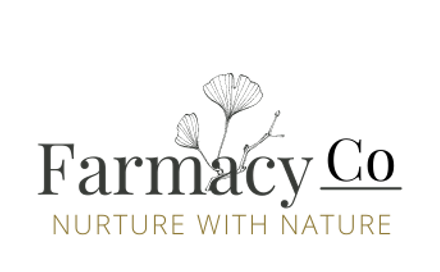POLLINATOR PATCH
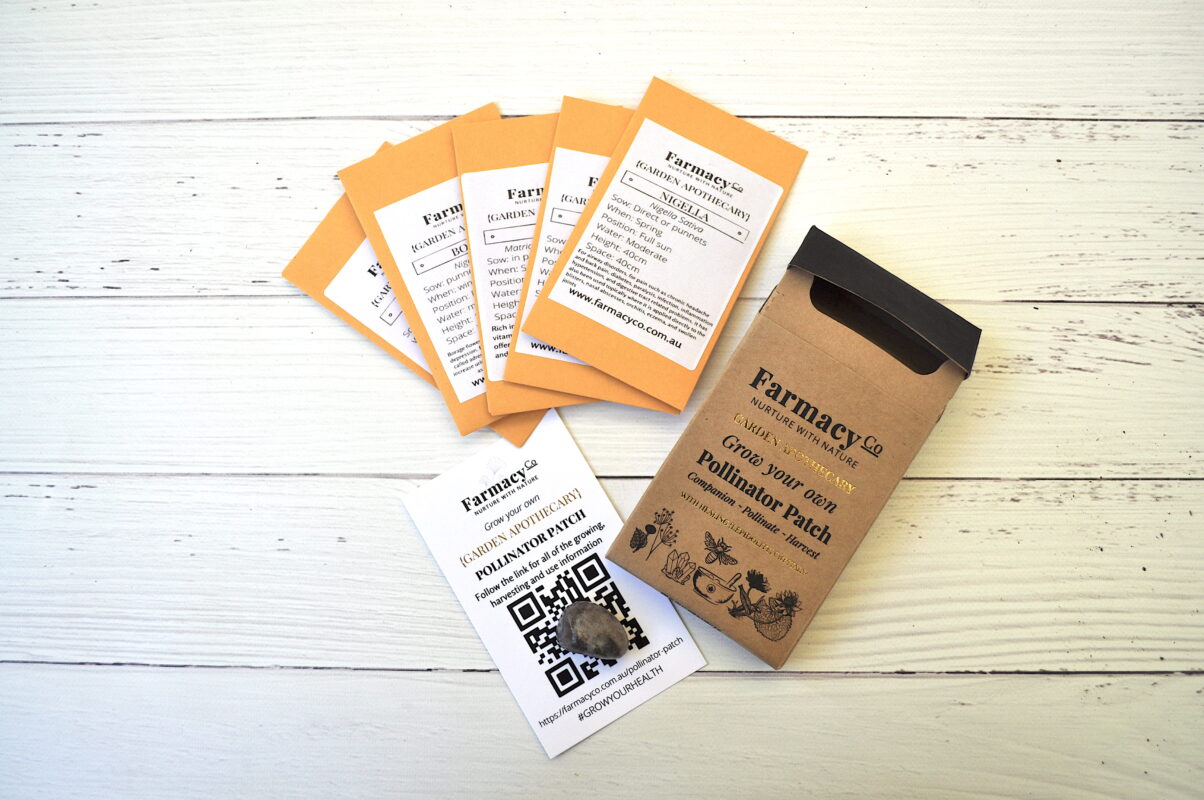
POLLINATOR PATCH
Congratulations on making the choice to Grow your health with our Garden Apothecary Pollinator Patch.
In this pack you’ll find 5 different herb varieties to grow in your garden or on your balcony and Lepidolite crystal to add a little extra magic to your plants.
Lets start with each herb and how to grow them, what they look like and how to harvest, then we’ll move onto some recipes to get the most benefit from your medicinal herbs.
GROW
NIGELLA
| Method: | Sow direct or raise seedlings |
| Sowing Depth: | 3mm |
| When: | Spring and autumn |
| Germination: | 7-14 days @ 16-18°C |
| Hardiness / Life Cycle: | Hardy Annual |
| Plant Spacing: | 30cm |
| Plant Height: | 45cm |
| Position: | Full sun, moist soil |
| Days to Maturity/Flowering: | 100 days |
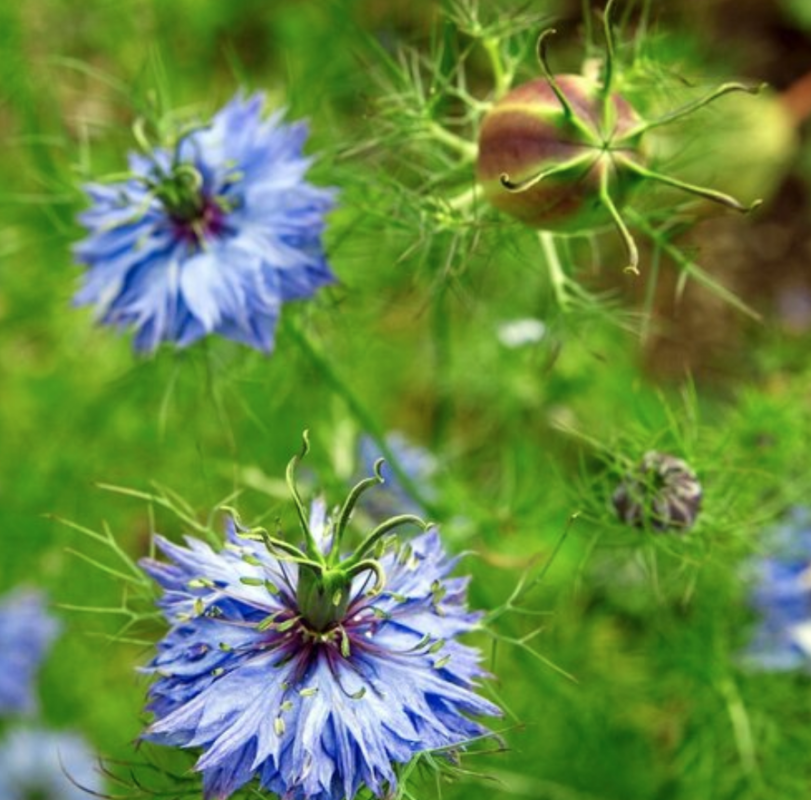
Not only do the bee’s love Nigella, it also produces black cumin seeds after flowering which studies have shown it has demonstrated anti-oxidant, anti-inflammatory, anti-microbial, anti-histamine and immunomodulatory properties. Supporting it’s traditional use, black seed has been shown to have both preventative and therapeutic applications for an increasing number of health conditions, including a wide range of gastro-intestinal disorders, respiratory disorders, thyroid conditions, nervous system disorders and certain cancers, according to a literature review. Another review supports the use of topical Black seed oil in a number of skin conditions, from acne to psoriasis and has been shown to promote wound healing.
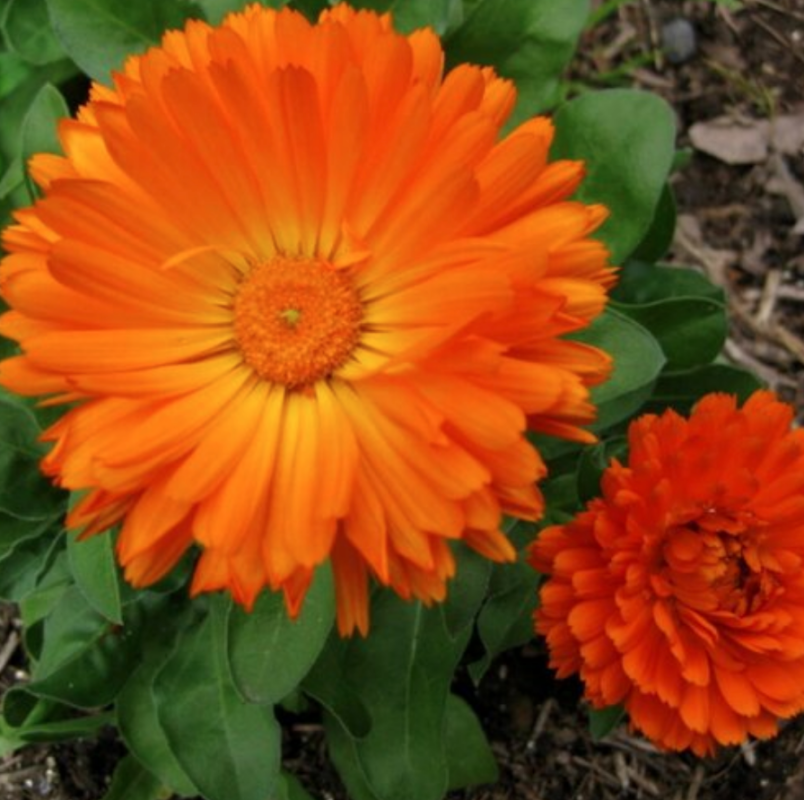
CLAENDULA
| Method: | Sow direct or raise seedlings |
| Sowing Depth: | 15mm |
| When: | Spring and autumn |
| Germination: | 7-14 days @ 20-22°C |
| Hardiness / Life Cycle: | Hardy Annual |
| Plant Spacing: | 50cm |
| Plant Height: | 60cm |
| Position: | Part or full sun, moist soil |
| Days to Maturity/Flowering: | 70-80 days |
Calendula grow nicely in the vegetable garden. Good companions are: Cucumbers, Tomatoes, Peas, Carrots, Asparagus, Spring salad vegetables. The flowers bloom best in cooler weather with low humidity. Cut them back and they will reward you with new growth and more flowers when the weather cools off. As well as being beneficial to insects they also have many health benefits and as a bonus are edible.
DILL
| Method: | Sow direct |
| Sowing Depth: | 2mm |
| When: | Spring, summer and autumn |
| Germination: | 7-21 days @ 18-22°C |
| Hardiness / Life Cycle: | Hardy Annual |
| Plant Spacing: | 20cm |
| Plant Height: | 90cm |
| Position: | Full sun, moist soil |
| Days to Maturity/Flowering: | 60 days (seed: 100 days) |
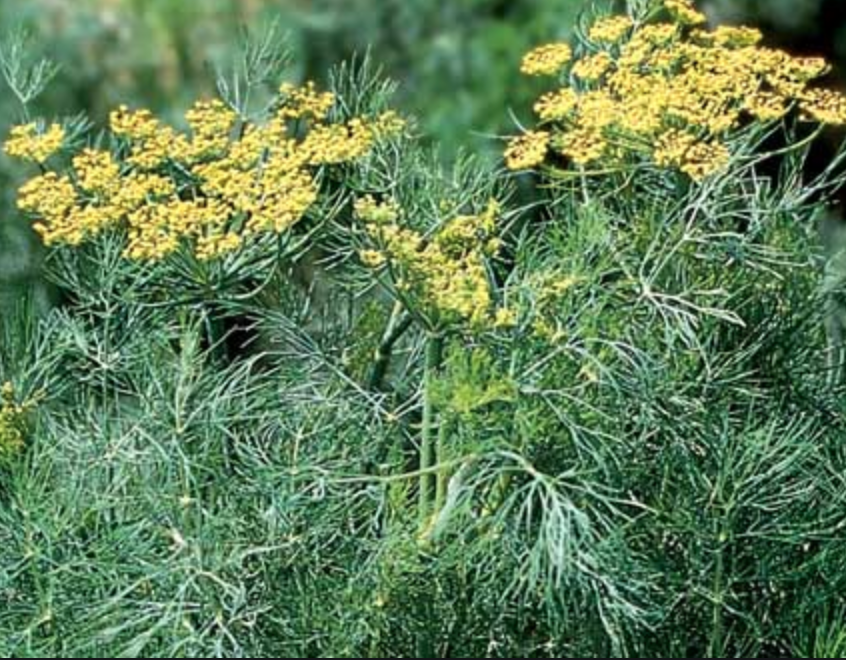
Bee’s just love flowering dill, you can use the leaves as a fresh herb. Once dill produces seeds and dies back, the plant will not continue to grow. You can harvest the seeds when the seedpod and seeds turn brown by cutting the whole stalk at the soil line. Hang the seeds upside down and wrap a paper bag around them. As the seeds dry, they will fall out of the seedpod and land in the paper bag. Dill will self-seed. If you want dill to come back next growing season, leave a few plants to go to seed. Of course, the dill might not come up exactly where you want it, but you won’t have to replant from seed, either.
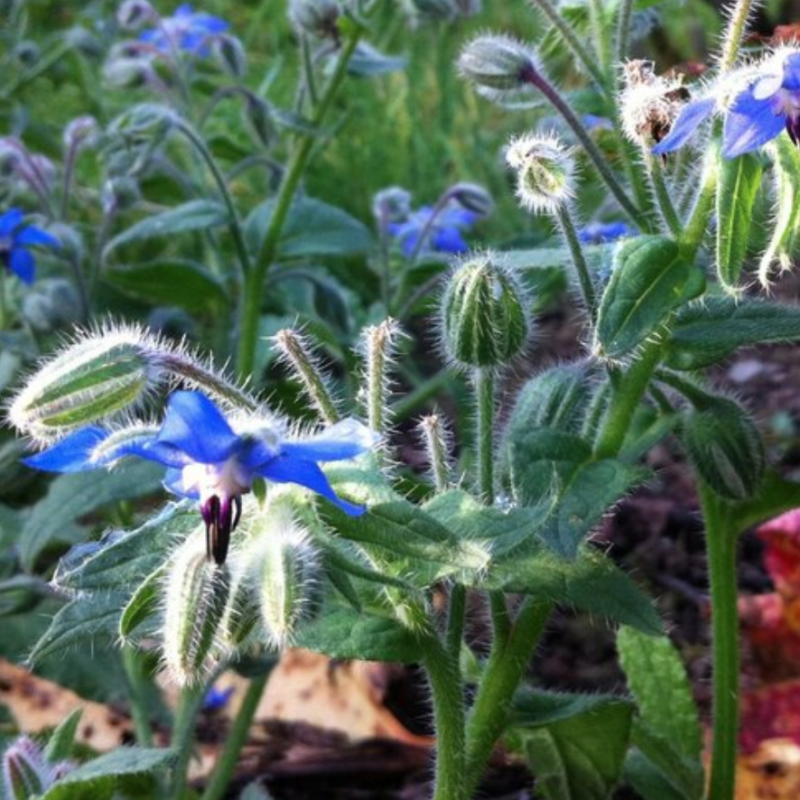
BORAGE
| Method: | Sow direct or raise seedlings |
| Sowing Depth: | 10mm |
| When: | Spring, summer and autumn |
| Germination: | 5-10 days @ 20-22°C |
| Hardiness / Life Cycle: | Hardy Annual |
| Plant Spacing: | 30cm |
| Plant Height: | 90cm |
| Position: | Part or full sun, moist well drained soil |
| Days to Maturity/Flowering: | 80-90 days |
Borage (Borago officinalis), also known as starflower, bee bush, bee bread, and bugloss, is a medicinal herb with edible leaves and flowers. Easy to grow from seed and one of the most popular plants for bee keepers. The slate grey leaves are topped by panicles of electric blue flowers that last for months and are the best for attracting pollinators to your garden. Both the flowers and leaves can be added to summer drinks making it a vital addition to the kitchen garden.
ECHINACEA
| Method: | Sow direct or raise seedlings |
| Sowing Depth: | 6mm |
| When: | Spring |
| Germination: | 10-15 days @ 18-21°C |
| Hardiness / Life Cycle: | Hardy Perennial |
| Plant Spacing: | 50cm |
| Plant Height: | 100cm |
| Position: | Part or full sun, moist well drained soil |
| Days to Maturity/Flowering: | 90-140 days |
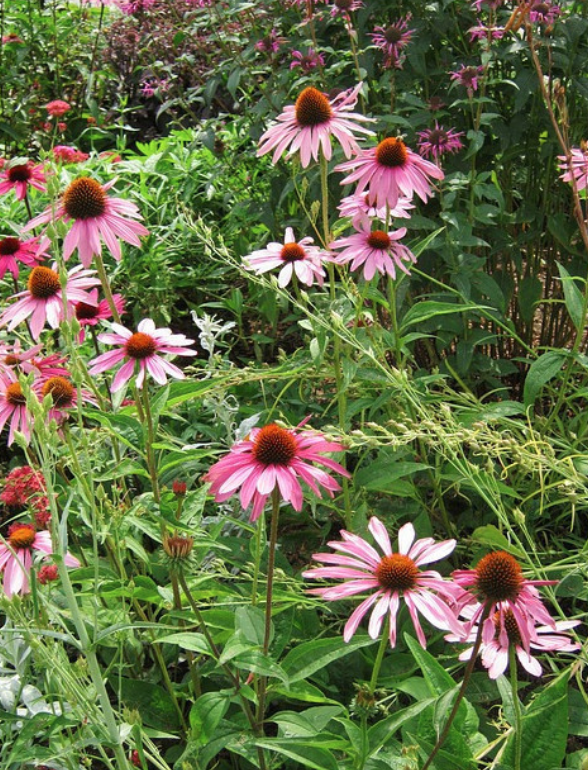
Unlike many flowers for bees, purple coneflower (Echinacea purpurea) pumps out as much nectar during the midday and afternoon hours as it does during the morning, so it is perhaps more useful to pollinators than many other flowers on a hot summer day.
HARVEST
Lorem ipsum dolor sit amet, consectetuer adipiscing elit, sed diam nonummy nibh euismod tincidunt ut laoreet dolore magna aliquam erat volutpat.
USE
Lorem ipsum dolor sit amet, consectetuer adipiscing elit, sed diam nonummy nibh euismod tincidunt ut laoreet dolore magna aliquam erat volutpat.
